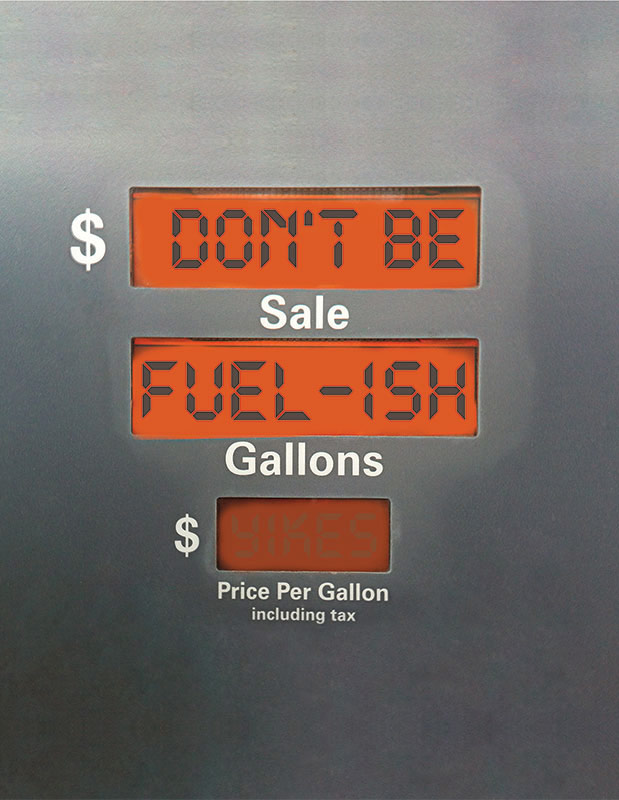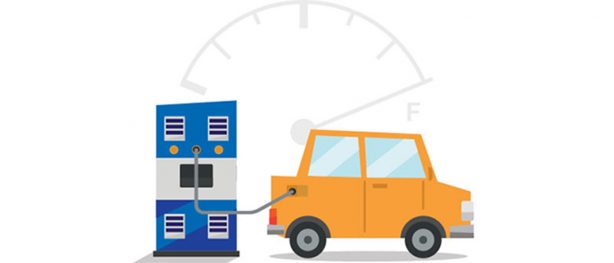Don’t Be Fuel-ish
GET THE MOST OUT OF EVERY TANK OF GAS.
TIPS FOR GETTING THE MOST OUT OF FUEL ECONOMY.
FOUR FUEL-SAVING FACTS

147,000,000 gallons of gas vaporize into the atmosphere each year due to the cap not being securely closed or missing.
Keeping up with regular vehicle maintenance can improve gas mileage by an average of 4.1%.
Fixing a serious maintenance problem, such as a faulty oxygen sensor, can improve your mileage by as much as 40%.
A dirty spark plug that causes misfiring and wastes fuel or a cooling system thermostat that causes the engine to run too cold can each reduce fuel economy by 2 mpg.
KEEP YOUR VEHICLE IN SHAPE
Plenty of fluids.
Dirty or substandard engine oil can reduce fuel economy by one mpg. Maintain clean fluids for the cooling system, transmission, differential and power steering pump.
Take deep breaths.
Replacing a clogged air filter can improve gas mileage by as much as 10%.
Pump it up.
Improve gas mileage by 3.3% by keeping tires inflated to the proper pressure. Under-inflated tires increase rolling resistance and waste fuel.
Make the grade.
Most gasoline-fueled vehicles are designed to run on regular gas (87 octane). Using a higher octane fuel than recommended for your vehicle can cause driveability issues and reduce fuel economy. Plus, you’ll be saving money at the pump!
RELAX YOUR DRIVING HABITS
Don’t deliberate – meditate.
Limit engine idling in traffic and warm-up periods – idling gets zero mpg.
Take your time.
Every five mph over 65 mph can decrease fuel economy by as much as 7%
Remain calm and collected.
Use modest acceleration when possible, minimizing “jack rabbit” starts. Aggressive driving can lower gas mileage by 33% on the highway and 5% in the city.
Let it roll off.
Allow the vehicle to slow down when driving up an incline or hill, and coast on the backside. Maintaining a constant throttle angle in these situations is more fuel efficient than using cruise control.
Relieve anxiety. Avoid rush hour by planning accordingly and try to eliminate stop-and-go driving.
SOURCE: Courtesy of the Car Care Council

0 Comments